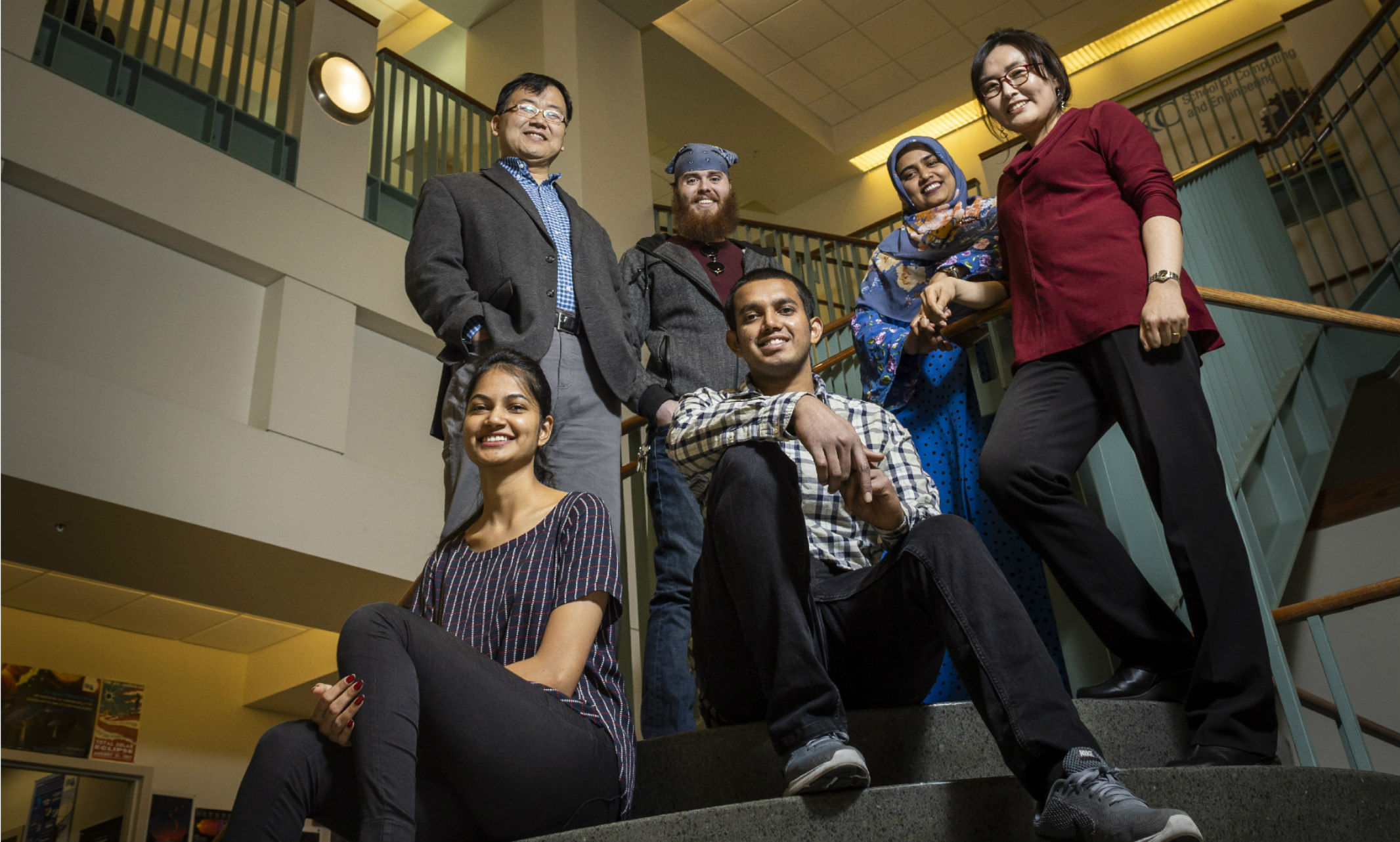There are currently more than 1 million incarcerated women in the United States. According to Baek-Young Choi, associate professor of computer science and electrical engineering, women are the fastest growing segment of the prison population, increasing nearly 834% nationwide within the last 40 years. Yet prison education systems are still primarily designed with men in mind.
Choi, alongside co-principal investigator Sejung Song, Ph.D. and a group of graduate-level students, is partnering with a team of faculty from the University of Kansas on a $1.4 million National Science Foundation-funded project – led by Hyunjin Seo, Ph.D., associate professor in the KU School of Journalism – to help women exiting prison advance their technology skills in hopes of improving their eligibility for better job opportunities and their ability to support their children’s education.
“Many women going into prison were underprivileged to begin with, and then in prison there’s a lack of access to the internet,” Choi said. “This leaves women vulnerable because when they are released, it’ll be difficult for them to find good jobs and have positive influences on their children as well.”
The NSF’s advancing informal STEM learning (AISL) program that supports this project seeks to engage the public of all ages in learning STEM in informal environments, and may serve as a template for workforce preparation efforts. The scope of the program the two institutions are designing consists of curriculum planning, developing a three-course learning management system (which Baek-Young and team are building), engaging with potential program participants and potential community partners as well as leveraging regional resources for additional support.
The UMKC STEM team will co-lead education sessions and curriculum development alongside KU, build the online learning system and participate in experiential research to understand the challenges of women-in-transition with respect to acquiring technology skills and analyzing effects of different education models – face-to-face (in public libraries), hybrid (a combination of on-site and online) and online only.
“We really want this program to be informed by research, so we do a lot of research to learn what the participants’ needs and interests are, and incorporate that into the STEM curriculum,” Choi said. “We also want to know what the most effective way of teaching STEM is for this population, so we’re testing multiple modes of education.”
Course 1 - Introduction to computing
The introductory course will teach computational thinking, which is not only helpful for understanding technology but also for everyday problem solving skills. Choi said the team hopes that this program will help improve women’s self-esteem and confidence as they face new challenges and how they feel about themselves as their attachment and sense of belonging evolves in this group, which will help their employment in the long run.
Course 2 – Web basics
The course will lead women in learning basic website elements, HTML and development environments.
Course 3 – Web advanced
The course will teach women website building for business, which would include form building and use of FinTech tools. This course is a combination of hybrid and online-only courses.
The duration of each course depends on the needs of the women, but the project team is anticipating 12 to 16 weeks per course while the full project, including research and development, will last about three years. The team kicked off the project in September 2019, and will use this first quarter for planning and preparation, followed by leading educational sessions and, finally, analyzing results by August 2022. They’re also hoping to garner industry and other support to enrich and sustain the program. Choi said they’ll have potential users try out the learning management system before it officially launches.

